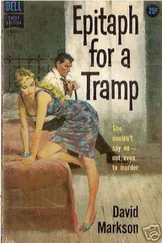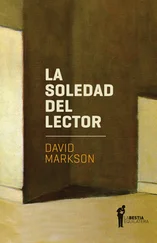This one has weathered fairly well, come to think about it. The next snows will be my third here, I believe.
Probably I should compose a list of where else I have been, if only for my own edification. I mean beginning with my old loft in SoHo, before the Metropolitan. And then my trips.
Although doubtless I have lost track of a good deal of that by now, as well.
I do remember sitting one morning in an automobile with a right-hand drive and watching Stratford-on-Avon fill up with snow, which must surely be rare.
Well, and once that same winter being almost hit by a car with nobody driving it, which came rolling down a hill near Hampstead Heath.
There was an explanation for the car coming down the hill with nobody driving it.
The explanation having been the hill, obviously.
That car, too, had a right-hand drive. Although perhaps that is not especially relevant to anything.
And in either case I may have made an error, earlier, when I said I left a message in the street saying that somebody was living in the National Gallery.
Where I lived in London was the Tate Gallery, where so many of the paintings by Joseph Mallord William Turner are.
I am quite certain that I lived at the Tate.
There is an explanation for this, too. The explanation being that one can see the river, from there.
Living alone, one is apt to prefer a view of water.
I have always admired Turner as well, however. In fact his own paintings of water may well have been a part of what led to my decision.
Once, Turner had himself lashed to the mast of a ship for several hours, during a furious storm, so that he could later paint the storm.
Obviously, it was not the storm itself that Turner intended to paint. What he intended to paint was a representation of the storm.
One's language is frequently imprecise in that manner, I have discovered.
Actually, the story of Turner being lashed to the mast reminds me of something, even though I cannot remember what it reminds me of.
I also seem not to remember what sort of a fire I had at the Tate.
At the Rijksmuseum, in Amsterdam, I removed The Night Watch by Rembrandt from its frame when I was keeping warm there too, incidentally.
I am quite certain I intended to get to Madrid around that time also, since there is one painting at the Prado by Rogier van der Weyden, The Descent from the Cross, that I had wished to see again. But for some reason, at Bordeaux, I switched to a car that was facing back in the other direction.
Then again perhaps I had actually crossed the Spanish border as far as to Pamplona.
Well, often I did unpremeditated things in those days, as I have said. Once, from the top of the Spanish Steps in Rome, for no reason except that I had come upon a Volkswagen van full of them, I let hundreds and hundreds of tennis balls bounce one after the other to the bottom, every which way possible.
Watching how they struck tiny irregularities or worn spots in the stone, and changed direction, or guessing how far across the piazza down below each one of them would go.
Several of them bounced catty-corner and struck the house where John Keats died, in fact.
There is a plaque on the house, stating that John Keats died there.
The plaque is in Italian, naturally. Giovanni Keats, it calls him.
The name of the river at Hisarlik is the Scamander, I now remember.
In the Iliad, by Homer, it is referred to as a mighty river.
Well, perhaps it was, at one time. Many things can change, in three thousand years.
Even so, sitting above it one evening on the excavated walls, and gazing toward the channel, I was almost positive one could still see the Greek watchfires, being lighted along the shore.
Well, as I have said, perhaps I did not really let myself think that.
Still, certain things are harmless enough to think.
The next morning, when dawn appeared, I was quite content to consider it a rosy-fingered dawn, for instance. Even though the sky was murky.
Meanwhile I have just taken time to move my bowels. I do not go to the dunes for that, but down to the ocean itself, where the tide will wash in.
Going, I stopped first in the woods beside the house for some leaves.
And afterward went for water from my spring, which is perhaps a hundred paces along the path in the opposite direction from the beach.
I have a stream, too. Even if it is hardly the Thames.
At the Tate I did bring in my water from the river, however. One has been able to do that sort of thing for a long while, now.
Well, one could drink from the Arno, in Florence, as long ago as when I lived at the Uffizi. Or from the Seine, when I would carry a pitcher down the quay from the Louvre.
In the beginning I drank only bottled water, naturally.
In the beginning I had accouterments, as well. Such as generators, for use with electrical heating devices.
Water and warmth were the essentials, of course.
I do not remember which came first, becoming adept at maintaining fires, and so shedding devices of that sort, or discovering that one could drink any water one wished again.
Perhaps becoming adept at fires came first. Even if I have burned two houses to the ground, over the years.
The more recent, as I have noted, was accidental.
Why I burned the first one I would rather not go too deeply into. I did that quite deliberately, however.
That was in Mexico, on the morning after I had visited poor Simon's grave.
Well, it was the house we had all lived in. I honestly believed I had planned to stay on, for a time.
What I did was spill gasoline all over Simon's old room.
Much of the morning I could still see the smoke rise and rise, in my rearview mirror.
Now I have two enormous fireplaces. Here in this house by the sea, I am talking about. And in the kitchen an antiquated potbellied stove.
I have grown quite fond of the stove.
Simon had been seven, by the way.
A variety of berries grow nearby. And less than minutes past my stream there are various vegetables, in fields that were once cultivated but are of course now wildly overgrown.
Beyond the window at which I am sitting the breeze is frisking with ten thousand leaves. Sunlight breaks through the woods in mottled bright patches.
Flowers grow too, in great profusion.
It is a day for some music, actually, although I have no means of providing myself with any.
For years, wherever I was, I generally did contrive to play some. But when I began to get rid of devices I had to give up the music as well.
Baggage, basically, is what I got rid of. Well, things.
Now and again one happens to hear certain music in one's head, however.
Well, a fragment of something or other, in any case. Antonio Vivaldi, say. Or Joan Baez, singing.
Not too long ago I even heard a passage from Les Troyens, by Berlioz.
When I say heard, I am saying so only in a manner of speaking, of course.
Still, perhaps there is baggage after all, for all that I believed I had left baggage behind.
Of a sort. The baggage that remains in one's head, meaning remnants of whatever one ever knew.
Such as the birthdays of people like Pablo Picasso or Jackson Pollock, for instance, which I am convinced I might still recite if I wished.
Or telephone numbers, from all of those years ago.
There is a telephone right here, actually, no more than three or four steps behind where I am sitting.
Naturally I was speaking about numbers for telephones which function, however.
In fact there is a second telephone upstairs, near the cushioned window seat from which I watch the sun go down, most evenings.
The cushions, like so much else here at the beach, are musty. Even on the hottest days, one senses the dampness.
Читать дальше












